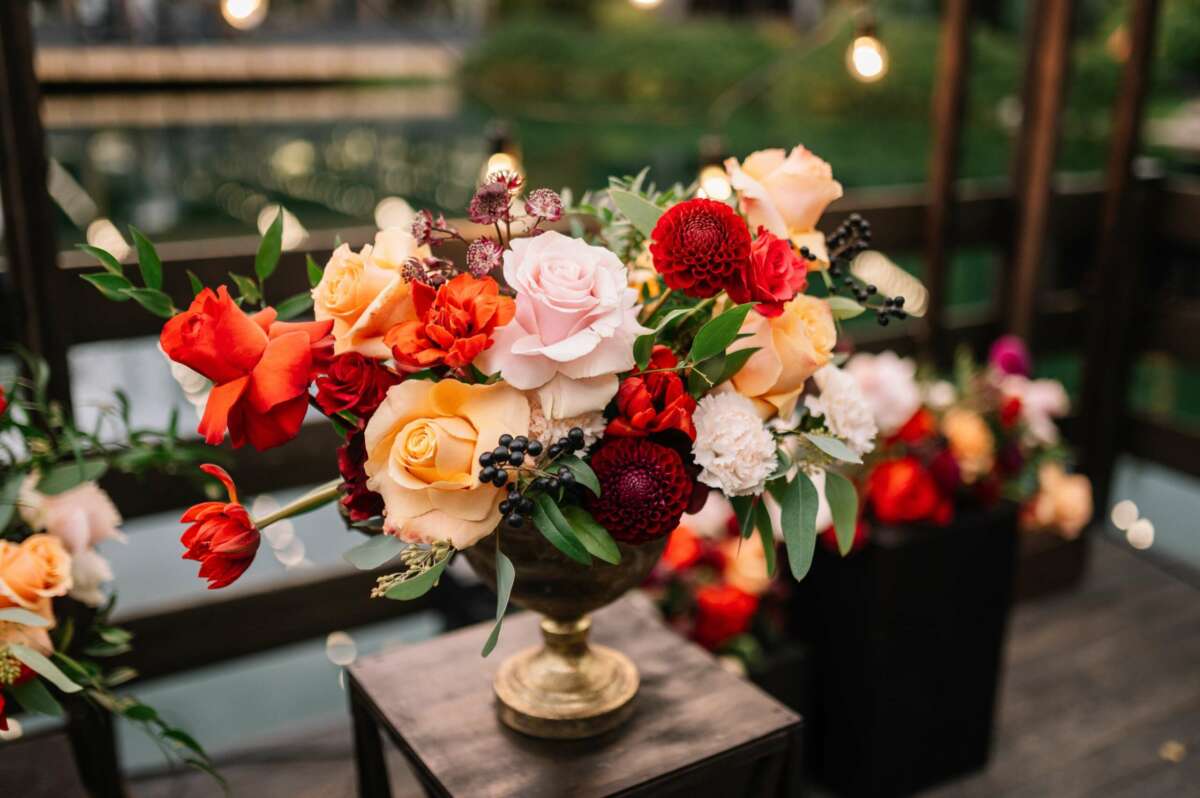It’s Fall Fitness time here at Dandelion Chandelier. Post Halloween and pre-Thanksgiving, there’s no better time to check in and tune up your fitness routine. Our multi-part week-long series will investigate all manner of fitness activities, news, and new trends.
First up? We’ve written about the best spin classes in the world, and about the best indoor stationary bikes for those who prefer to sweat in private. As we conducted our research, we realized that lots of our friends and far-flung correspondents are men who from time to time participate in group spinning classes. Be it SoulCycle, FlyWheel, The Dailey Method (TDM) or some other studio, they report being a distinct minority in this milieu. So what’s it like to be a man in a predominantly female exercise class? In their own (lightly edited) words, our intrepid male spinners share their personal stories from inside the studio. The second opinion in our series comes from our Head of Communications, who is an avid road cyclist and two-time Ironman competitor who bikes 25 miles to work most days and further on the weekends – so he knows a wee bit about cycling.
First off, why spinning?
I ask myself the same question. The fundamental pleasure of being on a bike is being outside, present in the world and subject to all of its elements. I acknowledge that spin classes in dense urban centers make a certain sense – when I lived in NYC, it seemed less preposterous to go to a spin class that it does now that I live in California, largely because riding a bike in NYC is more or less supplicating yourself before the God of Taxis and hoping you don’t end up getting crushed by a car, or thrown over your bars by a pothole. And, there is always the argument for doing spin classes in the off-season (rain, winter, maybe it’s too hot outside). That said, some spinning classes – the ones with ridiculous activities and movements on the bike (bobbing back and forth, doing dumbbell curls) is not only stupid to me (I didn’t get on a bicycle to get a mean bicep workout), it also means that most of the basic positioning on the bike is antithetical to how you actually ride a real bike in the real world, and also, how your body works. So to me, it heightens the feeling the entire time that I am involved in an ersatz activity. It is the Aspartame of exercise. Dailey Cycle is significantly different in that the foundational idea of the class is to position yourself on the bike in a way that respects the actual architecture of your body – which one tends to ignore in the real world because you become fatigued, or simply aren’t mindful about it in the first place (so you slouch, drop your neck, collapse your spine, etc.). If anything, the idea of carefully positioning and aligning your body on the bike is the most valuable part of a TDM Cycle class, because I actually take it with me outside the studio on real rides – which, as far as I know, is unique.
How many guys or what percent of the typical class you attend is male?
If there’s 10% you’re lucky.
Is the teacher ever male?
My favorite male spin instructor of all time is Tristafe, the instructor in the Unbreakable Kimmy Schmidt episode where she becomes a “Spirit Cycle” devotee, and who encourages Kimmy to find her “spirit dolphin.”
How do you feel being in the minority in this situation? Does that inform any other part of your life?
I made the mistake of marrying a fit woman and now professional instructor, so I have been an “early adopter” of what would be considered gender- specific fitness practices: there weren’t a lot of guys doing Hatha Yoga in the 90s, and there still aren’t any guys (other than me) taking barre classes on a regular basis. So as a middle aged guy with grey in his beard, I am used to it. What is genuinely remarkable in all of these pursuits is the ongoing reminder of the vastly different ways in which bodies can be strong. I tip the scales at 190 pounds, I would consider myself in well above average shape for a guy my age, and beyond triathlons at various points in my checkered fitness past boxed, wrestled and played rugby. And the day after a barre class I feel like I have been hit by a bus, whereas my wife is seemingly unaffected. It’s as though she has muscles in places where I don’t have places. The same is true of a spin class, but quantified: while I can routinely “beat” all of the students in class in terms of average and maximum watts produced on the ride, I do it while flopped over the handlebars, panting like a wounded rhino, where my wife will be beautifully placed on top of the bike, head up and heart forward, efficiently aligned with her entire body supported by a vast network of muscles I don’t even understand.
As far as creating an awareness or some kind of equivalency to someone who is in a legitimate minority position in other parts of my life, at least in this country and given current affairs, I’m just not sure it really maps. I sort of put it in the same category as spraining my wrist – I’d never look at someone who’s missing a hand and say, “hey, I totally understand what it’s like.”
What have you learned from working out with women?
They are, if anything, ruthlessly efficient. Most of the women have jobs and kids to manage, and they show up, work hard as hell, and race off to do the dozen other things that need doing to keep their lives on the rails. If I was anywhere near that level of productivity, I’d be the CEO of a company right now.
What advice would you have for a guy thinking about starting spinning?
Have your rationale intact, and understand the limitations of the activity. If you are a biker, you need to understand that this is not simply riding your bike indoors (that’s what trainers are for). This is a different thing, and a different kind of workout – a combination of intense cardio conditioning, an oddly strong sense of community with the folks in the room, and depending on what kind of class you take, either candles and life lessons or an opportunity to think carefully about your kinesthetic relationship to the bike. And like anything, the workout is what you make it. I’ve puked from exertion in a spin class – once, in New York – so your only excuse for not getting a good workout is you.
Do you think more about your appearance at class than you would in another workout situation?
My wife will not permit me to wear my cycling bibs in class, because my “stupid spandex lederhosen” horrifies her. I work hard and I sweat a ton, and so she has conceded that I can wear a headband which I take to extremes to bug her (bright pink, folded with Axl Rose style largesse). But on balance I wear my cycling tights and a loose t-shirt and more or less blend in.
Do you think you’re more or less competitive than usual when there is a majority of women in the class?
Interestingly, I find cycling classes oddly individual in the sense I generally am only competing with myself – can I push any harder, for any longer? And when I do look around, I am not looking around to see my competition, I am looking around for extra motivation – if I am running out of gas, and I see someone working hard, it is inspiring. So while the activity, for me, is very individual, I see the people in the room as some combination of team mates and boosters. Which is to say, I am probably less far competitive in a cycling class that I would be on the road – where there is no question that when I see someone in front of me, even if I am commuting to work, I try to catch and pass them. I don’t know, but I do wonder, if there could be something specific about “female energy” in the cycle studio that is somehow more constructive than basic group competitiveness.
What are the funniest things that have happened or that has been said to you? What has surprised you the most? What have you learned about women?
When training for races, I would work as hard as possible – high cadence, high resistance – for the entire class. I would quite literally sweat buckets (my change in body weight before a class vs. after could be 2-3 pounds, which is to say, 32-48 ounces of water on the floor underneath me). One day after class a woman stepped in the puddle around my bike, soaking her socks completely through, and said, looking at the ceiling, “there’s a leak in here.” The woman who was right beside me said “yeah, it’s him.”
In terms of learning things about the women in class with me, it is always just really impressive to see the range of people in the room, the different motivations they have, and how hard they all worked. It’s one thing to see a lithe twenty year old in a class, but it’s another altogether to see women who are pregnant, who have given birth and are pushing themselves to get back into shape, who are older, who are in all kinds of different shapes and sizes, working harder than hell. It’s inspiring. It’s one thing to see someone at the office hunched over a desk “working hard,” and it’s another to see someone you know, a friend or a neighbor, in absolute physical agony because they are pushing themselves to their limits, in the moment. It’s an oddly intimate piece of knowledge, and bonding – it’s a big part of why these classes, as a format, work.
What have you learned about yourself?
I look awesome in tights.








